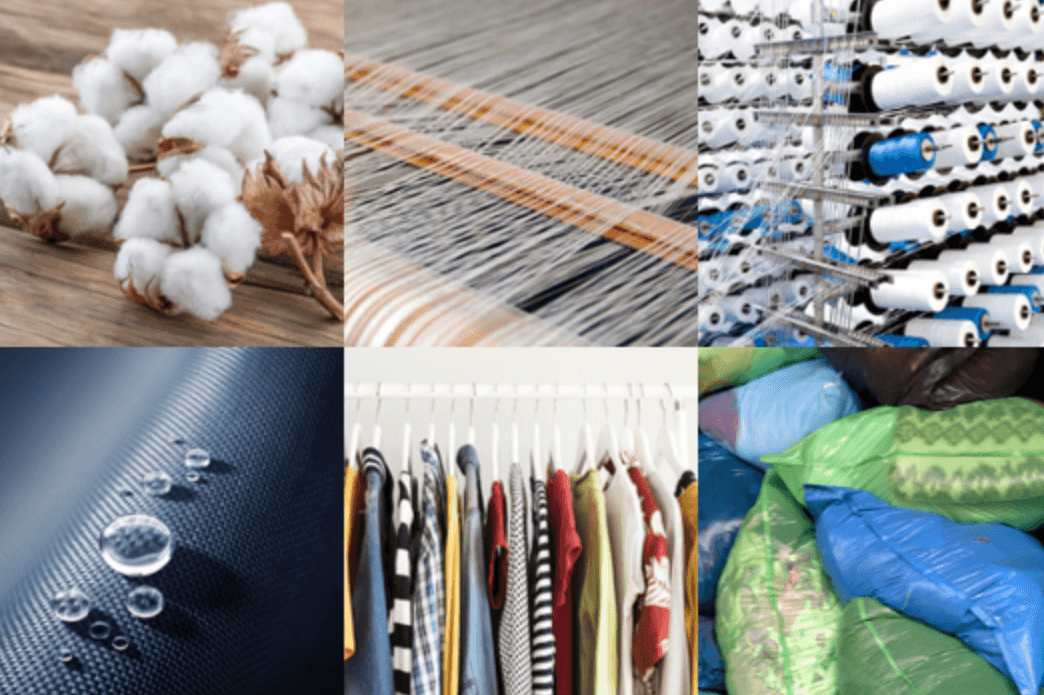The materials used and the production of textiles are often not very sustainable. With the aim of making sustainable fashion accessible and affordable for all, we work every day to find and implement sustainable alternatives to conventional materials for our products.
The materials used and the production of textiles are often not very sustainable. With the aim of making sustainable fashion accessible and affordable for all, we work every day to find and implement sustainable alternatives to conventional materials for our products.
The fact that the thoughtless consumption of textiles means problems for the environment and people is becoming clear to more and more consumers. With their consumption behaviour, customers want to actively contribute to conserving the planet's resources and improving working conditions in the producing countries, often in the Third World. The alternatives that seem to offer themselves are organic cotton or recycled polyester. What can the eco-fabrics do - and what not?
Organic cotton: why it is good for the environment
Cotton, as consumers in Europe have now also realised, is a greedy crop. Cotton cultivation gobbles up vast amounts of water, and not only that: herbicides and pesticides are used to make high harvests possible. These not only poison the soil and groundwater, but also the people who work in the textile industry, and ultimately the consumer.
In the cultivation of organic cotton, on the other hand, harmful factors are consistently avoided. It already starts with the seeds. The cotton seeds must not be genetically modified. Artificial fertilisers are not used in cultivation, nor are herbicides or pesticides, although manual weeding is extremely time-consuming. The result is impressive: if you buy just one T-shirt made of organic cotton, you get 7m² of soil free of chemical pollutants! Water consumption is also lower with organic cotton. While a kilogram of cotton in "normal" cultivation devours more than 10,000 litres (!) of water, only a little more than half of this amount is needed in organic cultivation through targeted drip irrigation. An equally important factor is that the people who work in cotton cultivation and in the textile processing industry must not be exploited so that the finished fabric really deserves its organic label. All this has its price. Accordingly, a garment made from the soft, breathable fabric is more expensive than "fast fashion" made from conventional cotton.
What is recycled polyester?
About half of the garments produced worldwide are made of polyester - and the trend is rising, especially in sports and leisure wear. The resistant, elastic fabrics are not sustainable, however, because they are produced on the basis of the plastic PET, a by-product of the petroleum industry. Polyester, however, can be recycled. The resulting material, known as rPET for short, is made by melting down polyester and spinning it into new fibres. The yield is good; five plastic bottles can be used to make fibres for a T-shirt! This, of course, reduces the consumption of new synthetic fibres and contributes to less plastic waste being released into the environment. However, PET cannot be reused indefinitely. During each recycling process, the molecules are broken down and become partially unusable. The "yield" of recycling thus becomes smaller and smaller. Moreover, the recycling process itself consumes energy and chemicals and releases microplastics.
Not perfect - but better
A "perfect" solution for textile production does not - yet - exist. Both the increasingly popular organic cotton and rPET-based garments cannot be produced in a completely environmentally and pollutant-neutral way. Nevertheless, they are of course preferable overall to conventionally produced textiles, if only because they significantly reduce the burden on people and the environment. Through conscious consumer behaviour, i.e. buying a few high-quality pieces rather than constantly renewing the "fast fashion" wardrobe, consumers can make a significant contribution to reducing environmental pollution! Because here, too, it is not only the quality that counts, but also the quantity!
We at NIKIN make our contribution
At NIKIN, we want our range of sustainable products at fair prices to help consumers make conscious choices about garments that are less harmful to the environment. Therefore, we are always on the lookout for suitable sustainable alternatives to conventional materials. For some time now, we have been using GOTS certified organic cotton and recycled polyester instead of conventional textiles for our textile products. Of course, we are aware that we are not perfect yet, but we are well on our way in the right direction! Our concern: We want sustainable materials to become the standard and not just a luxury for a few. We want to make sustainable and fair fashion accessible and affordable for everyone.





















